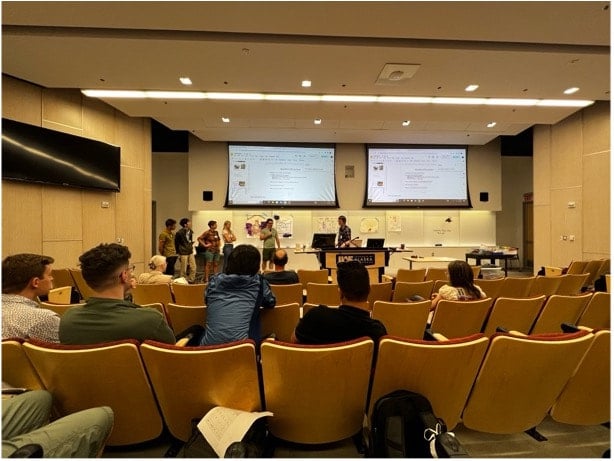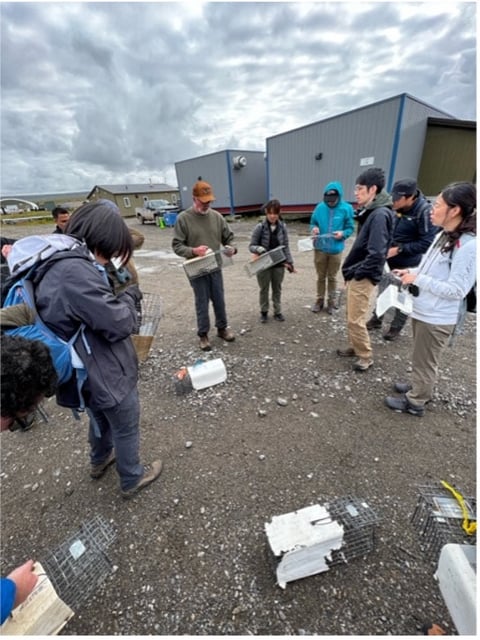UAF Hibernation Science Workshop参加レポート(2)
学会・領域会議参加2023-10-14
It could be "A wonderful science workshop in the far north”
Ming-Liang LEE (Exploratory Research Center on Life and Living Systems/National Institute for Physiological Sciences)

This amazing workshop was organized by the International Hibernation Society and the University of Alaska Fairbanks. During the 12-day period, the workshop could be divided into three parts: indoor lectures, outdoor events, and the 3-day trip to Toolik Research Station. This workshop attracted many students/researchers interested in hibernation studies. It also developed links between Japan and other countries.
They provided many lectures which started from very simple concepts like definition and hibernation patterns so that the beginners like me could easily understand the content. After that, they discussed more and more details about hibernation studies such as thermoregulation and metabolism and hibernation strategies of different animals. There were more than a dozen people giving talks about their research, including neuroscience, metabolomics, and even ecology. The hibernation science community is much larger than I thought, and I'm surprised that we're not innocent about hibernation, but that we already know a lot. The knowledge about the physiology of hibernation is even known enough to be used in humans!

In this workshop, we were allowed to visit their animal facility for housing Arctic ground squirrels, a popular animal model for hibernation research. We were also told how to set up an animal room for hibernation studies. It's very useful for us to prepare a suitable environment for our animals. We visited a permafrost tunnel and a forest area after a forest fire, which are very important for the ecosystem, and how they have changed with climate change. Recently, a paper in Science showed that changes in the freeze-thaw cycles of permafrost soils due to global warming affect the hibernation of Arctic animals. It reminded me how critical climate change is with a real case. In the last 3 days we visited the Toolik research station where they do field studies. This station is located in the polar region and is very isolated. We saw their workspace and how they do experiments in the field. This is a wonderful experience to understand how to do field studies. The people in the workshop are very nice. Everyone is willing to share their research results. I felt that they really put a lot of effort to try to recruit new researchers and expand the society in this hibernation research field.
I would like to express my gratitude to the UAF for the organization of this wonderful workshop and to Hibernation Biology 2.0 for providing us with the financial support.

